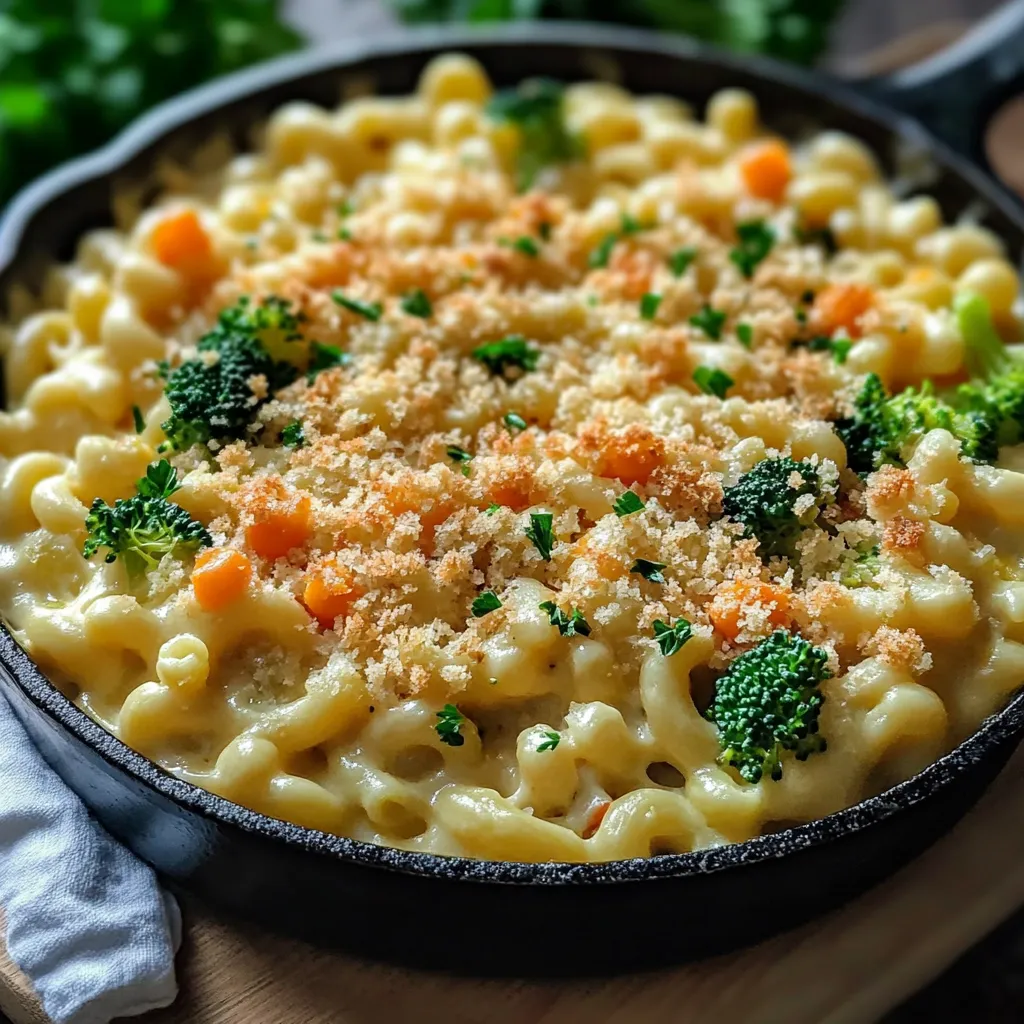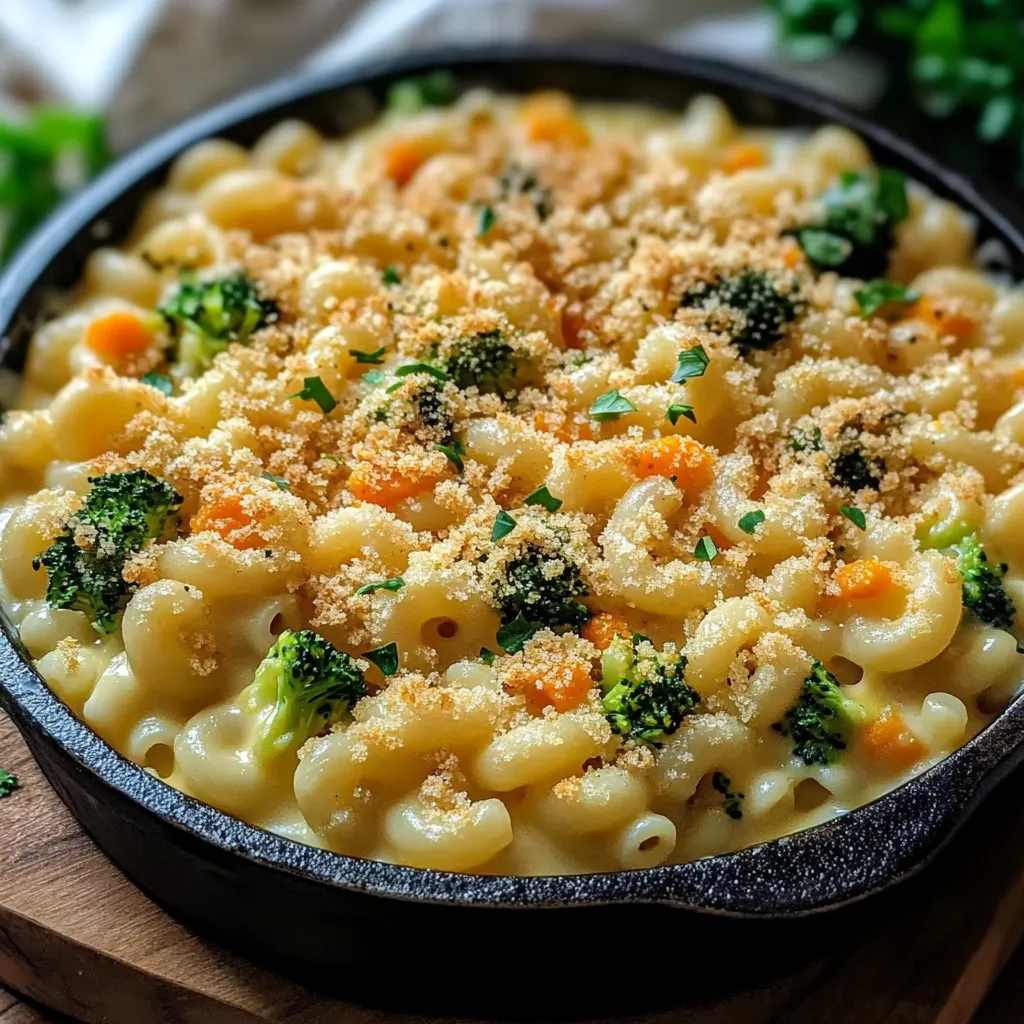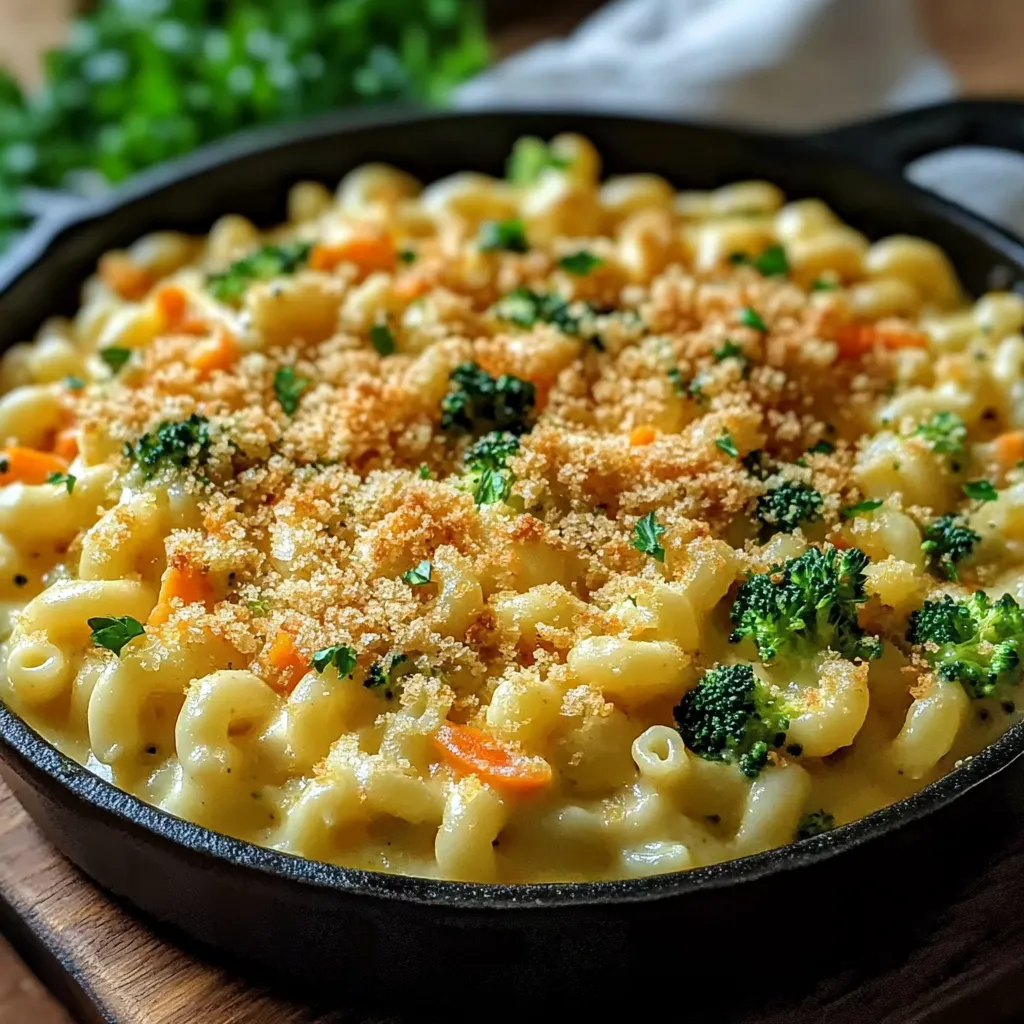 Save
Save
This soul-warming one-pot wonder takes mac and cheese to new heights by blending vibrant veggies into the creamy, cheesy sauce everyone loves. What makes this dish special is how uncomplicated it is – everything simmers together, letting flavors mingle perfectly while cutting down on kitchen cleanup. As the pasta cooks, it soaks up all the liquid, naturally thickening the sauce without any need for separate flour mixtures or extra steps.
I came up with this trick during a crazy busy week when the dishes were stacking up faster than I could handle them. My little girl, who usually eyes anything green with total suspicion, ate two big helpings without even noticing all the veggies hiding in the cheesy goodness. It's become our Thursday night thing now, with family members taking turns picking which veggies we'll throw in.
Picking Your Ingredients
- Pasta shapes: Go for smaller or medium sized ones with grooves or pockets that grab onto sauce really well, like elbows, shells, or twisted rotini
- Cheese selection: Sharp cheddar gives you that classic taste, but mixing in some parmesan or gruyere adds more depth and melts even better
- Vegetable options: Tiny chopped broccoli, colorful bell peppers, and fresh baby spinach add brightness, nutrients, and interesting textures that blend right in
- Cooking liquid: Using veggie broth instead of plain water packs in extra flavor that soaks into every bite of pasta
The Step-By-Step Process
- Start with the basics:
- Warm some olive oil in a big, sturdy pot over medium heat, then toss in your diced peppers and let them cook until they're starting to get soft, about 3 minutes.
- Add flavor boosters:
- Throw in your minced garlic and stir it around just until you can smell it, maybe 30 seconds tops, making sure it doesn't turn brown and get bitter.
- Get the pasta ready:
- Dump in your dry pasta and stir it around to get it coated in oil, letting it toast slightly for about a minute which brings out a nutty flavor and helps it keep its shape better.
- Pour in your liquid:
- Add enough veggie broth to cover the pasta completely, then bring everything to a gentle bubble, stirring now and then so nothing sticks to the bottom.
- Time for the first veggies:
- When the pasta's about halfway done (roughly 5 minutes in), add your chopped broccoli and keep cooking until the pasta is nearly done but still has a bit of firmness.
- Add the quick-cooking greens:
- Mix in your baby spinach and cook just long enough for it to wilt down, keeping its bright green color and all those good nutrients.
- Make it cheesy:
- Take the pot off the heat and slowly mix in your shredded cheese, stirring the whole time until everything's melted into a smooth, creamy sauce.
- Finish it off:
- Taste and add salt, pepper, and a tiny bit of mustard powder which makes the cheese taste even cheesier without any actual mustard flavor.
 Save
Save
The first time I whipped this up, I dumped all the veggies in at once and ended up with mushy broccoli alongside almost-raw carrots. After playing around with the timing, I figured out that adding different veggies at different stages gets everything cooked just right. My hubby really likes how the broccoli stays slightly crunchy, giving some nice texture against the soft, creamy pasta.
Nutritional Benefits
This simple one-pot meal packs way more nutrition than you might think. It gives you a good mix of proteins, complex carbs, and important vitamins and minerals. The broccoli loads you up with vitamins C and K, while spinach brings iron and folate to the table. Your cheese adds calcium and protein, making each bowl a pretty balanced meal. For parents, it's a win knowing your kids are happily gobbling up veggies without a fuss.
Serving Ideas
Dress up your veggie mac and cheese with some fun serving tricks. Spoon portions into small oven-safe dishes, sprinkle extra cheese and some breadcrumbs on top, then broil until golden for a fancy restaurant look. When friends come over, just bring the whole pot to the table with a simple green salad dressed with lemony dressing on the side. In fall and winter, try adding some roasted cherry tomatoes on top – they burst with sweet juice that tastes amazing against the creamy pasta.
Changing It Up
You can easily switch this recipe around to fit different diets and tastes. Want more protein? Just stir in some white beans or chickpeas right at the end of cooking. For a Mediterranean twist, mix in some sun-dried tomatoes, artichoke hearts, and olives with a bit of feta cheese. Can't do gluten? Swap regular pasta for brown rice or chickpea pasta – just watch the cooking liquid and time since they cook differently. These changes keep the one-pot simplicity but give you totally different flavor experiences.
Storage Tricks
Keep any leftover cheesy veggie pasta in sealed containers for quick meals later in the week. When you're ready to eat it again, add a splash of milk and warm it slowly on low heat, stirring often to bring back that creamy texture. Try not to use the microwave if you can help it – it tends to make hot spots and dry edges. To save time on busy days, chop all your veggies ahead and keep them in the fridge until you're ready to cook. Many folks say it tastes even better the next day after the flavors have had time to mix and mingle.
This dish really sums up what I think cooking should be – simple, healthy, and something that gets everyone excited to sit down together. What started as just trying to save time washing dishes has turned into a family favorite, showing that quick and nutritious can go hand in hand. Seeing everyone's happy faces as they dig into a bowl of colorful, veggie-filled mac and cheese proves that sometimes the simplest meals end up being the ones everyone remembers.
 Save
Save
Recipe FAQs
- → What veggies work well for this?
- Almost anything! Try using broccoli, zucchini, peppers, carrots, peas, spinach, or kale. For tougher veggies like carrots, chop them small to cook faster. Leafy greens can be added at the end.
- → Can it be made vegan?
- Totally! Swap in your favorite vegan cheese shreds and use veggie broth instead of water. For extra cheesy flavor, try tossing in 1-2 tablespoons of nutritional yeast.
- → What if the pasta is firm but liquid’s gone?
- Just pour in an extra 1/4 to 1/2 cup of hot broth or water, give it a stir, and cook until the pasta softens up. Different pastas might need slight adjustments.
- → Can I toss in protein?
- Sure! Chickpeas, tofu, or white beans work great for vegetarians. If you’re not vegetarian, add pre-cooked chicken, shrimp, or bacon after the pasta is cooked.
- → How do I keep this creamy when reheating?
- Add a splash of milk, cream, or broth while reheating (1-2 tablespoons per serving). Heat gently and stir frequently. Microwaves on medium power work best to avoid separating the cheese.
